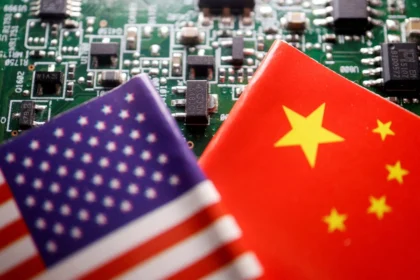Scale AI Reassures Stakeholders Amid Meta Deal Fallout: “We Are Not Winding Down,” Says Interim CEO
San Francisco-based Scale AI, one of Silicon Valley’s most prominent startups at the intersection of data labeling and artificial intelligence infrastructure, is pushing back against recent speculation that the company may be preparing to wind down. Following headlines about a reported dissolution of a major deal with Meta, the company’s interim CEO has directly addressed employees and clients, asserting that Scale AI is “absolutely not winding down” and remains committed to its mission of powering the future of artificial intelligence.
This public assurance arrives at a critical moment for the company, whose rapid rise during the AI boom positioned it as a vital enabler of large-scale machine learning models across sectors. But as the broader AI economy begins to undergo recalibration, even the most promising players are not immune to scrutiny.
The Meta Contract: A Source of Confusion
Recent reports have indicated that Scale AI’s high-profile partnership with Meta (formerly Facebook) has undergone a significant shift. While details remain sparse, sources suggest that Meta has reduced or terminated some aspects of its collaboration with Scale, prompting speculation about the implications for Scale’s long-term viability.
The partnership, initially hailed as a milestone in AI development, was focused on providing labeled datasets and annotation infrastructure necessary for training Meta’s advanced AI models. For a company like Scale AI—whose core business revolves around curating clean, accurate, and human-reviewed datasets for model training—Meta represented both a major client and a stamp of credibility.
However, industry analysts argue that Meta’s decision reflects internal strategic shifts rather than a rejection of Scale AI’s capabilities. Meta, like other tech giants, is increasingly moving parts of its AI development in-house to reduce dependency on external vendors. This trend, though disruptive for some, is not uncommon as large firms consolidate control over their proprietary models and data pipelines.
A Company in Transition, Not Decline
Brandon Hale, Scale AI’s interim CEO, addressed the internal and external chatter during a recent all-hands meeting, emphasizing that the company is not scaling back operations. “We are navigating a changing landscape in AI, but our foundation is strong, our pipeline is active, and our mission is unchanged,” he reportedly told staff.
According to internal communications obtained by sources close to the company, Hale acknowledged the uncertainty caused by the Meta development but stressed that Scale continues to serve a wide range of enterprise and government clients. These include autonomous vehicle companies, defense contractors, and fintech firms—many of which rely heavily on Scale’s tools to fine-tune machine learning models.
Hale, who stepped into the interim CEO role following founder Alexandr Wang’s decision to transition into a more strategic leadership position, also reiterated Scale’s long-term vision. “Data is the oxygen of AI, and no one does high-quality, enterprise-grade data pipelines like we do,” he said.
Adapting to a Shifting AI Market
Scale AI’s model of operation—offering annotated data, synthetic datasets, and data infrastructure tools—was instrumental during the first wave of generative AI development. But as foundational models such as OpenAI’s GPT-4 and Google’s Gemini become more generalized and self-supervised, some have questioned whether large-scale data labeling services will maintain their relevance.
However, industry experts argue that the future of AI will still depend heavily on domain-specific fine-tuning, edge deployment, and compliance-focused AI, all of which require curated, labeled datasets. In sectors such as healthcare, defense, and autonomous transportation, raw model performance often falls short without bespoke training data.
Scale AI has already begun repositioning its services accordingly. The company recently announced expanded offerings in synthetic data generation, reinforcement learning from human feedback (RLHF), and red teaming for safety evaluation—areas that are becoming critical in the age of frontier AI models.
Moreover, the firm continues to invest in its relationships with public sector clients. Its ongoing work with the U.S. Department of Defense, including a contract to support the Joint Artificial Intelligence Center (JAIC), is seen as a signal of strategic durability. Government contracts not only offer financial stability but also confer credibility in safety-sensitive and mission-critical applications.
Leadership Shift and Organizational Resilience
Scale’s leadership transition has also attracted attention. Alexandr Wang, the wunderkind founder who launched the company at the age of 19, is stepping back from day-to-day operations but remains a guiding force behind product and strategy. While his departure from the CEO position raised some concerns, insiders describe the move as a natural evolution for a founder maturing into a broader role—similar to transitions seen at other prominent startups.
Brandon Hale, who previously served as the company’s Chief Operating Officer, is widely respected within the organization for his operational acumen and customer-first approach. His appointment as interim CEO is being viewed not as a crisis measure but as a sign of Scale’s adaptability and internal depth.
In a follow-up message to clients, Hale stressed continuity: “We’re not going anywhere. If anything, we are doubling down on what we do best—enabling the most ambitious AI projects in the world.”
The Road Ahead: Strategic Realignment
As the AI sector enters a new phase of consolidation, differentiation, and ethical regulation, companies like Scale AI must redefine their value proposition. The days of hype-driven contracts may be waning, but the demand for trustworthy, high-quality data infrastructure is far from over.
Analysts suggest that Scale is now focusing on three primary pillars:
- Specialized Data Services: With a renewed focus on sectors that require regulatory compliance and ethical oversight, including healthcare, finance, and defense.
- AI Safety and Evaluation: Leveraging tools like RLHF, bias detection, and adversarial testing to help enterprises build safe, auditable AI systems.
- Synthetic and Simulated Data Generation: Reducing dependence on real-world data collection while improving scalability and privacy.
If successful, this shift could future-proof Scale’s business model against the volatility of client churn and changing AI architectures.
Conclusion: Rumors Aside, Scale AI Remains a Critical AI Player
The recent noise surrounding Scale AI is emblematic of a broader trend in tech: as hype cools and pressure builds for sustainable growth, even top-tier companies face skepticism. But beneath the headlines, Scale AI continues to serve as a cornerstone for much of the AI work being developed behind the scenes.
With its leadership reaffirming commitment, strategic shifts underway, and a broad client base spanning commercial and governmental sectors, Scale AI is not fading into irrelevance. Instead, it is evolving—just as AI itself is—from a bold startup into a mission-critical infrastructure provider for the next generation of intelligent systems.
Only time will tell whether this evolution secures Scale’s position in the competitive AI landscape. But for now, one thing is clear: reports of its demise are not only premature—they may be entirely off the mark.










